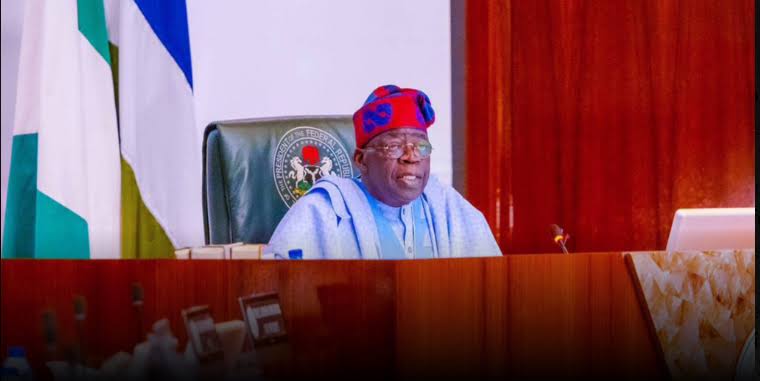President Bola Tinubu has reaffirmed that the legislative process concerning the Tax Reform Bills currently before the National Assembly will proceed as planned. He has invited those with concerns about the bills to actively participate in the upcoming public hearings.
According to reports from THEWILL, the National Economic Council (NEC), led by Vice President Kashim Shettima, convened on Thursday and recommended that the President withdraw the bills to facilitate broader consultations.
On October 13, President Tinubu had urged the National Assembly to consider and pass four key tax reform bills, including the Nigeria Tax Bill, the Tax Administration Bill, and the Joint Revenue Board Establishment Bill.
During a meeting in Kaduna on Monday, the Northern Governors Forum (NGF) expressed their opposition to the proposed amendment regarding the distribution of Value Added Tax (VAT), arguing that it is detrimental to the interests of the North and other regions. They urged National Assembly members to reject any legislation that could threaten the welfare of their constituents.
In response, the Presidency defended the bills on Thursday, asserting that they are designed to benefit all regions, including the North.
In a subsequent statement released on Friday by Bayo Onanuga, Special Adviser on Information and Strategy, President Tinubu emphasized the importance of the ongoing legislative process. He believes it will enable necessary inputs and adjustments without necessitating the withdrawal of the bills from the National Assembly.
The statement read: “President Bola Tinubu acknowledges the NEC’s recommendation to withdraw the tax reform bills for further consultation. He appreciates the guidance from Vice President Kashim Shettima and the 36 State Governors.
“President Tinubu is confident that the current legislative process offers a platform for input and refinement, and he encourages the NEC to allow this process to unfold fully. He welcomes further discussions with key stakeholders to address any concerns regarding the bills as they move through the National Assembly.
“When President Tinubu established the Presidential Committee on Tax and Fiscal Policy Reform in August 2023, his primary goal was to enhance the economy’s productivity and create a more favorable environment for investment and business. This objective remains paramount.
“The Committee engaged with various sectors across the country over the past year, gathering insights from trade associations, professional bodies, government agencies, governors, business owners, and other stakeholders.
“The resulting tax reform bills reflect the extensive deliberations of the Presidential Committee. Their aim is to streamline Nigeria’s tax administration, overhaul existing tax operations, and align them with global best practices.”
The statement outlined the four key bills:
1. The Nigeria Tax Bill: Aims to eliminate multiple taxation and simplify tax obligations for individuals and businesses, enhancing Nigeria’s economic competitiveness.
2. The Nigeria Tax Administration Bill (NTAB): Proposes new regulations for tax administration, seeking to harmonize processes across federal, state, and local levels to improve taxpayer compliance and increase revenue for all government tiers.
3. The Nigeria Revenue Service (Establishment) Bill: Seeks to rename the Federal Inland Revenue Service (FIRS) to the Nigeria Revenue Service (NRS) to reflect its broader mandate as the revenue agency for the entire federation.
4. The Joint Revenue Board Establishment Bill: Proposes the creation of a Joint Revenue Board to replace the Joint Tax Board, encompassing federal and state tax authorities. This bill will also establish an Office of Tax Ombudsman to protect taxpayer interests and facilitate dispute resolution.
The overarching goal of these reforms is to enhance coordination among federal, state, and local tax authorities, thereby eliminating the inefficiencies that have long plagued Nigeria’s tax administration.
The proposed reforms aim to consolidate various taxes—including Company Income Tax (CIT), Personal Income Tax (PIT), Capital Gains Tax (CGT), Petroleum Profits Tax (PPT), Tertiary Education Tax (TET), and Value-Added Tax (VAT)—into a unified framework, reducing administrative complexities.
While differing viewpoints on specific provisions may exist, the necessity for a comprehensive review of Nigeria’s tax laws and administration remains clear, aligning with the nation’s broader development agenda.
President Tinubu continues to value and welcome the insights and recommendations from the National Economic Council, recognizing its vital role in shaping economic policy.


